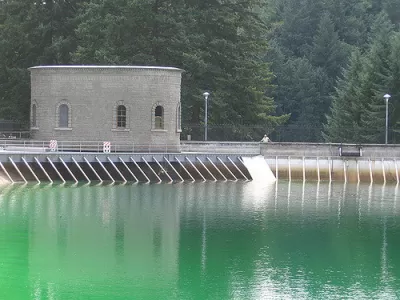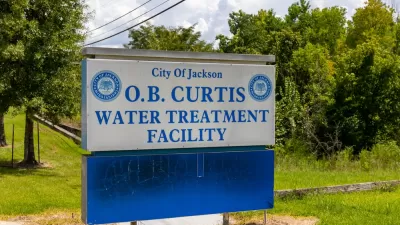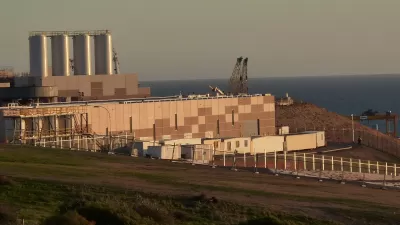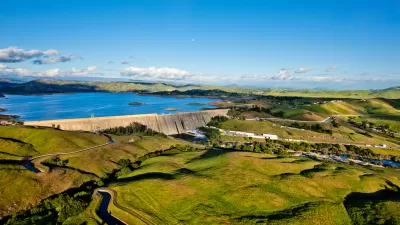Though the plan to move water storage capacity for the Washington Park reservoirs underground is getting more expensive, the project must be completed to comply with federal regulations.

The cost of bringing Portland's Washington Park reservoirs into compliance with federal regulations is rising—now at $190 million after increasing by $20 million since eight months ago. Brad Schmidt reports, however, that the price increase will not deter the city from completing the project, even if the price continues to rise.
According to Schmidt, the "reservoir project would mark the city's second-most expensive public works effort behind the $1.4 billion Big Pipe." When complete in 2024, the project won't change the appearance of the reservoir, though storage will move to an underground facility. Schmidt explains:
Officials plan to replace the open-air Reservoir 3 with a closed underground reservoir that features a reflective pond on top, similar in appearance to what's there now. Reservoir 4 will be disconnected from the water system but Portland will build a bioswale and reflective pool.
FULL STORY: Portland reservoir project increases (again) to $190 million

Planetizen Federal Action Tracker
A weekly monitor of how Trump’s orders and actions are impacting planners and planning in America.

Maui's Vacation Rental Debate Turns Ugly
Verbal attacks, misinformation campaigns and fistfights plague a high-stakes debate to convert thousands of vacation rentals into long-term housing.

Restaurant Patios Were a Pandemic Win — Why Were They so Hard to Keep?
Social distancing requirements and changes in travel patterns prompted cities to pilot new uses for street and sidewalk space. Then it got complicated.

In California Battle of Housing vs. Environment, Housing Just Won
A new state law significantly limits the power of CEQA, an environmental review law that served as a powerful tool for blocking new development.

Boulder Eliminates Parking Minimums Citywide
Officials estimate the cost of building a single underground parking space at up to $100,000.

Orange County, Florida Adopts Largest US “Sprawl Repair” Code
The ‘Orange Code’ seeks to rectify decades of sprawl-inducing, car-oriented development.
Urban Design for Planners 1: Software Tools
This six-course series explores essential urban design concepts using open source software and equips planners with the tools they need to participate fully in the urban design process.
Planning for Universal Design
Learn the tools for implementing Universal Design in planning regulations.
Heyer Gruel & Associates PA
JM Goldson LLC
Custer County Colorado
City of Camden Redevelopment Agency
City of Astoria
Transportation Research & Education Center (TREC) at Portland State University
Jefferson Parish Government
Camden Redevelopment Agency
City of Claremont





























